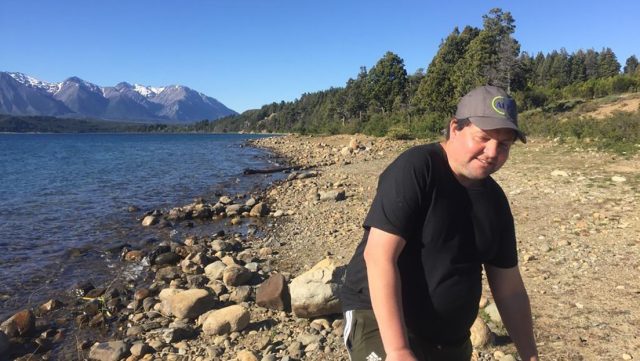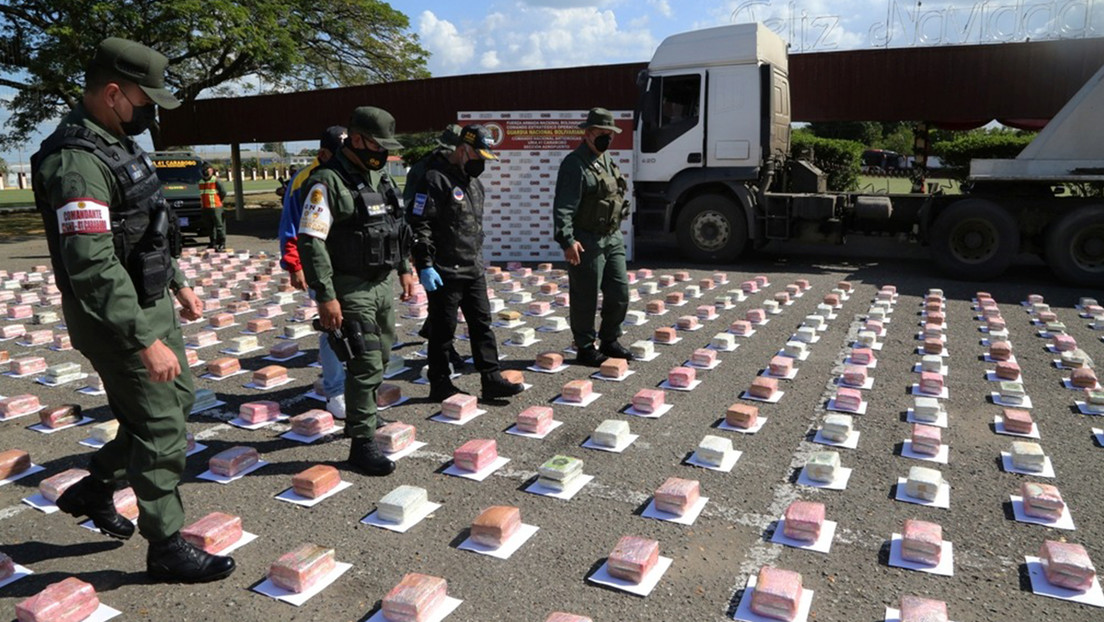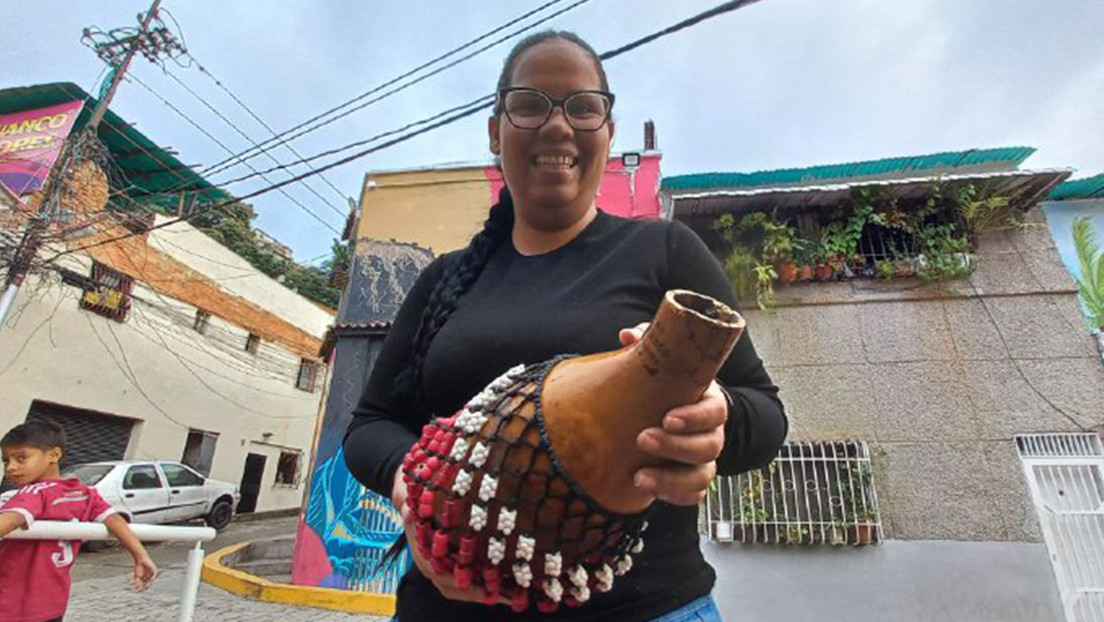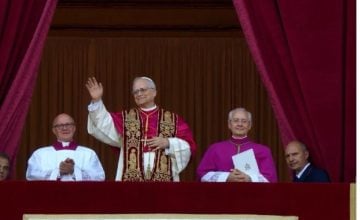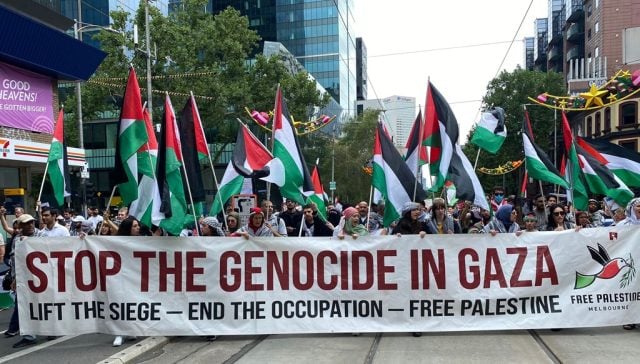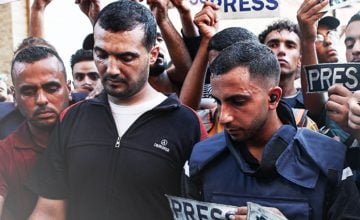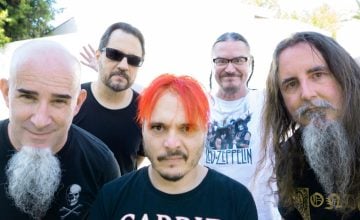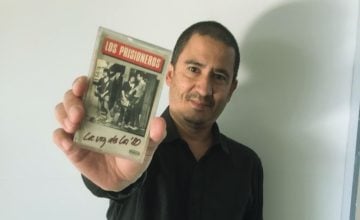Facundo Molares (46) wanted to be like ‘Che’ Guevara. At the beginning of it, he was already a member of the Communist Youth. «He was always characterized by being very vehement and clear with his ideas», Mónica Glomba, his companion since she was 14 years old, tells RT.
At the end of 2001, when the economic and social crisis broke out in Argentina, this man, born in the populous suburb of Buenos Aires, participated in the demonstrations, and saw how the tension in the streets led to the resignation of the president, Fernando de la Rúa. At that time, his feeling was that if they had had an armed and organized movement, the revolutionaries could have filled that power vacuum, something that the extreme left regrets to this day. “He used to say that it was something pivotal, that there was not going to be another moment like this in the country”, recalls Glomba.
His father, Judge Hugo Molares, says that as a child Facundo was «very dynamic, careful of his friends and applied at school». He was, «like so many Argentine boys, always running after a ball, with a smile».
Undoubtedly, the turning point between that student and the insurgent who got involved in the guerrilla was the social outbreak: «The events of 2001 made a great impression on him and motivated him to travel around the country, and then further north, through Latin America. That’s how he arrived in Colombia, when he was in his twenties, and joined the FARC». he says. His new name would become ‘Camilo’, or ‘El Argentino’, becoming one of the few foreigners who took center stage in the group, along with the Dutch Tanja Nijmeijer, alias ‘Alexandra Nariño‘, and the Chilean Manuel Olate Céspedes, nicknamed ‘Roque’.
«Welcome to freedom, councilman»
This guerrilla stood out in the Teófilo Forero front, belonging to the extinct Revolutionary Armed Forces of Colombia (FARC). His face became public knowledge in February 2011, when members of that guerrilla group released Councilman Armando Acuña, who had been kidnapped in 2009.
Commander Camilo, in his green uniform and burgundy beret, was in charge of the delivery. «It’s a humanitarian gesture from the FARC, a gesture for peace», he said before the microphone, in the middle of the jungle. And he added: «May the freedom of all those who have lost it, be the emblem that opens up for Colombia in the coming year. Welcome to freedom, councilman».
In November of this year, the victim himself confirmed that «El Argentino» led the release and even ordered him to put on a suit for his ‘reappearance’.
The listings and Facundo does not appear
In 2016, the peace agreement was signed between that guerrilla movement and the government of Juan Manuel Santos, which allowed the FARC to establish itself as a legalized political party: the Fuerza Alternativa Revolucionaria del Común (Alternative Revolutionary Force of the Collective) .
The pact was signed in exchange for the insurgency laying down its weapons, although some groups refused to sign the agreement and still choose the clandestine armed path. In the media, they are called the «dissidents» of the FARC. Meanwhile, many voices denounce that the treaty is not being complied with: hundreds of former guerrillas who did sign the peace agreement have been assassinated.
The agreement occupies a central role in the history of Facundo Molares. While the Colombian Prosecutor’s Office affirms that he does not appear in the records of the ex-combatants who signed the peace agreement, his lawyer, Gustavo Franquet, tells this medium that he did adhere to the pact, although due to an identification document problem, he does not appear in the official records. This is not a minor ‘problem’: only those who have stamped their signature can obtain amnesty for acts committed during the confrontations, according to prosecutors.
For the lawyer, this can lead to the fact that, in the case of the same crime with several defendants, only those who do not appear on the peace lists, presumably made by the insurgency, are prosecuted: «We are very surprised that there has been such a large margin of decision making in the hands of the FARC. It gives rise to innumerable arbitrariness”, he points out.
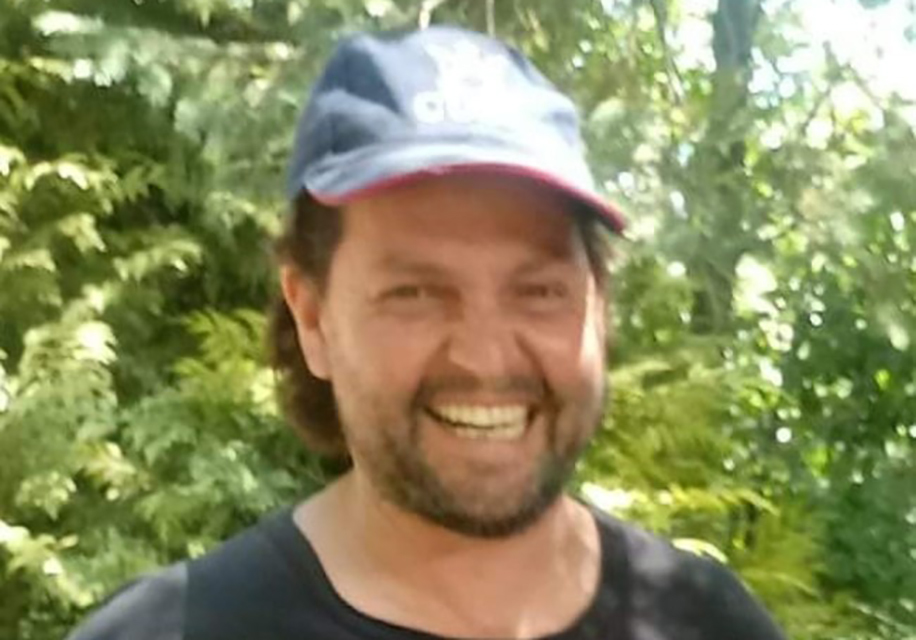
On this, several questions arise. Were there discrepancies between Molares and the FARC? Did ‘Camilo’ withdraw from the peace process? Did the guerrilla exclude him from the pact? Or, as the interviewee maintains, did Facundo accept the treaty with the Government but is not listed because he did not have documentation? One way or another, the truth is that «El Argentino» returned to his native country just a few months later. They say that he left his weapon and uniform in the camps before leaving.
Facundo’s trip to Bolivia and resistance to the coup
«Facundo is a photo-journalist, a popular communicator», says the father. After his hectic stay in Colombia, he spent his days in Mauricio Macri’s Argentina, with the same conviction of wanting to change the world. According to his family, now he wants to change the world from another place: journalism.
Far from the bullets and the rifles, his comrade, Glomba, highlights more aspects of his personality, including his sensitive side: «He is one of those who listens to a song or a poem that takes root in the people, and his eyes fill with tears». In his land, Molares established links with different social movements, being quite respected. «If there is something that all of his colleagues maintain, it is that he is a genuine, supportive guy. He says what he thinks, and does what he feels».
After months without major shocks, this romantic of the revolution, in all its forms, left for Bolivia. In 2019 he found himself in the department of Santa Cruz supporting the Government of Evo Morales, in the midst of the tension caused by his electoral victory, when he was about to have a fourth consecutive term.
Between accusations of fraud endorsed by the OAS, and accusations that the Movement for Socialism (MAS) violated the Constitution to remain in power, protests and confrontations reigned in the streets. Thus, Facundo was injured at the end of October in the town of Montero, where two people linked to the so-called ‘civicos‘, of the extreme right, also died.
The arrest: «It is evident that he did not come for a stroll»
In November of that year, with the coup d’état completed and Jeanine Áñez self-proclaimed as interim president, the Bolivian security forces announced the arrest of Facundo, accusing him of being «an instructor» of the FARC. «It is evident that he did not come for a stroll», they said from the departmental police. Meanwhile, the Argentine remained hospitalized «with a serious diagnosis» because of a gunshot wound and kidney problems. However, unlike ‘Che’, Molares did not die in Bolivia, and the rest of his imprisonment was spent in critical health.
In his close environment, they maintain that he was in the neighboring country covering the electoral events for the Centenario Magazine, linked to Argentine communism, although his publications are not known. The director of that medium, Leonardo Juárez, explains to RT that he «did not write anything from Bolivia because he was imprisoned in terrible conditions, and also more than 20 days in intensive care».
Before – Juárez indicates – he had published some opinion articles under the signature of «Julián Katari», in honor of Tupac Katari, a referent of the last uprising in upper Peru against the Spanish empire.
Likewise, the Bolivian uniformed officers insisted on their version, based on the review of telephone messages with Hugo, the father: «He told him that they had already taken the bridge and that they would advance supporting the Government», said the the director of the Special Force Fight Against Crime (EFLCC) at that time, referring to the Friendship Bridge, between the jurisdictions of Montero and Yapacaní. Thus, Facundo Molares, ‘Camilo’, ‘El Argentino’ or ‘Julián Katari’, was singled out for the alleged crimes of «homicide, criminal association and public instigation to commit a crime», and remained deprived of his liberty for a year.
From releasing him as a State policy to re-locking him up without hesitation
With the return of progressivism in Argentina and the rise of Luis Arce in Bolivia, the Government of Alberto Fernández set itself the goal of making diplomatic efforts to free Facundo, in preventive detention. The argument? His delicate clinical situation warranted a transfer to be treated in his country of origin.
«He was irregularly detained by the de facto government of Jeanine Añez», the Argentine Foreign Ministry said in a statement. For the Peronist Executive, Facundo received «accusations that the Public Prosecutor’s Office never accompanied by specific charges against him». This, added to the delays of at least four hearings and prison transfers, while his health was still critical.
In December 2020, the Montero Court accepted the request, after mediation by the Bolivian Ministry of Justice. In fact, Molares was returned to Argentina as if he were a front-line politician, aboard the Air Force Tango 11 plane, the same one used by the president on some occasion.
Thus, last year, this former guerrilla lived in his father’s house, in the southern province of Chubut, while he recovered from the physical consequences of the confrontations and confinement. On Sunday, November 7, when Facundo and Hugo were returning from lunch, they were surprised by a Federal Police operation, which arrested the militant for an extradition request issued by the Colombian Justice.
Today, the ex-combatant is locked up in a maximum security prison in the city of Rawson, the same one from which a group of guerrillas escaped during the 1972 dictatorship, concluding with the murder of 16 of them, in the well-known Trelew Massacre.
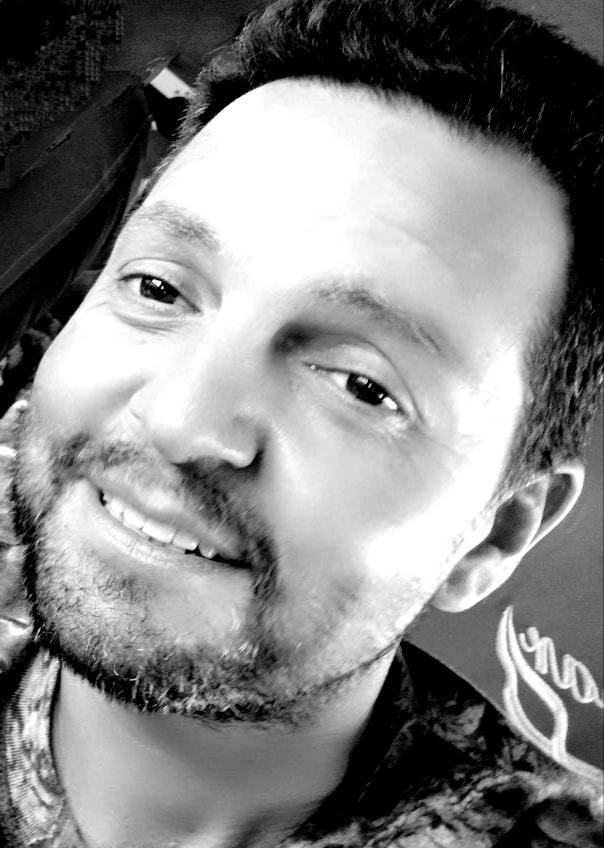
The red alert of the International Criminal Police Organization (Interpol) that weighs on Molares corresponds to the old case of the kidnapping of the councilman. Thus, the Argentine government went from advocating for his release to publicly announcing his arrest: «He was wanted worldwide», said the current Security Minister, Aníbal Fernández, who took office a few months ago, after the Executive was seen forced to modify almost the entire Cabinet after the defeat in the mid-term elections.
The response of the left-wing groups in Argentina was immediate, and they recently staged some protests to demand that Facundo not be extradited, stating that his safety is not guaranteed in Colombia.
“The peace treaty in Colombia does not mean a guarantee of life for the FARC militants. We know that the government of Iván Duque has systematically destroyed that process, and many of those granted amnesty have been murdered on a daily basis”, warns Mónica, Molares’s comrade.
In the mobilizations, they said that the extradition would be equivalent «to a death sentence», and they blamed the Argentine State for their security. Similarly, the request of the Colombian Justice was not rejected by the Foreign Ministry, led by Santiago Cafiero a few months ago.
The judicial trench
At the legal level, the defense attorney says that they will do everything possible so that the matter is resolved by the Special Jurisdiction for Peace (JEP) of Colombia, like any other signatory to the treaty, with amnesty.
On the specific facts that are imputed to him, the lawyer indicates: «For everything that is shown in the file that was sent, and from the statement of the kidnapped councilor himself, Facundo’s participation in the kidnapping was reduced to the time of delivery». According to Franquet, the main hypothesis against his client is based on repentant comments, who have their own interests. «He is also credited with participating in a combat between the FARC and the Police, where troops died», he adds.
Meanwhile, the extradition is delayed for bureaucratic reasons: Colombia’s request does not meet the requirements of Argentine law and existing agreements, and Molares’ defenders raised their objection. Faced with this, the Esquel judge did not annul the procedure, but asked Bogotá to make another appropriate request, within 30 days.
If the matter progresses, a trial hearing would be held, with witnesses and arguments. The defense plans to request documentary and testimonial evidence, and will even request the participation of experts. The magistrate may accept or reject the proposals, and then resolve the extradition of Molares, whose procedure may take a few months.
“It is impossible to deny the political content of the crimes that are attributed to Facundo. Argentine law and extradition agreements say that in those cases the person cannot be extradited. It is what we will say before the judge when the moment arrives”, explains Franquet. «There are also humanitarian issues, the peace process has become an extermination process», he concludes.
With this scenario, «El Argentino» is still confined in the southern prison. Perhaps reading texts about the revolutionary cause, planning an escape like his predecessors in the 70s, or simply crossing sticks on the wall, counting down the days until he knows his fate.
«This is how things work for those who are politically persecuted», laments Facundo’s father. In the streets, his companions remember him with more enthusiasm: «He is an internationalist».
